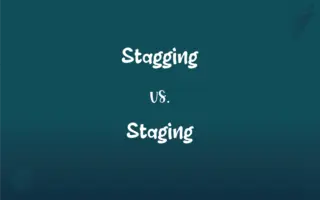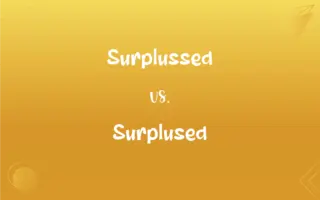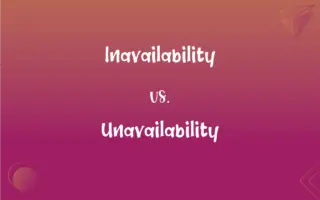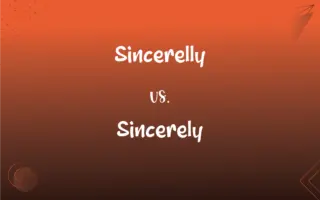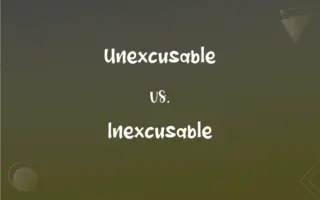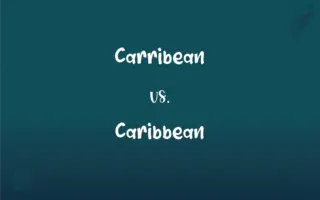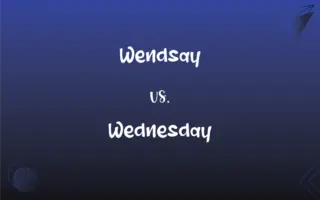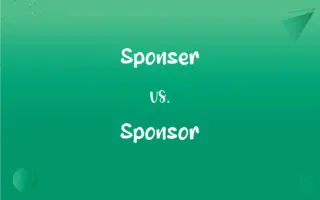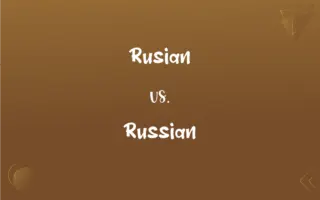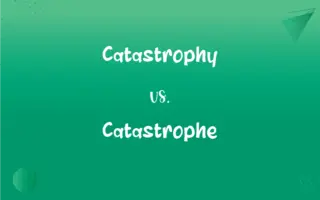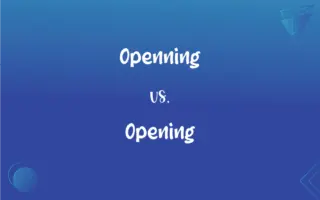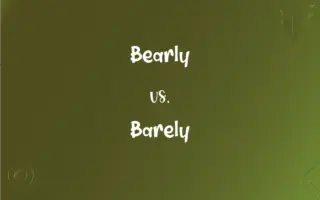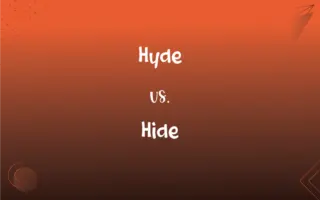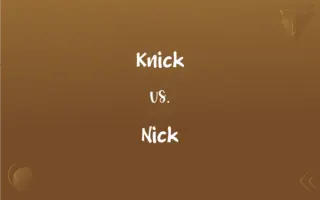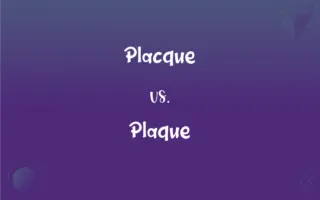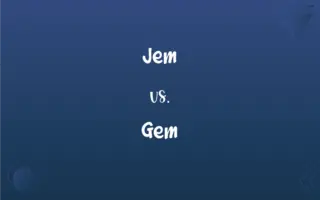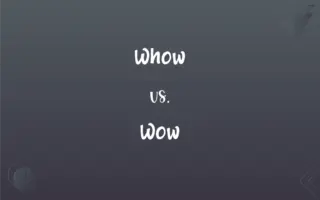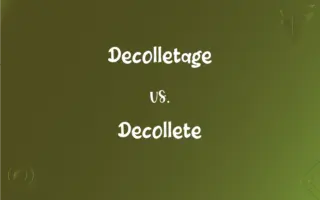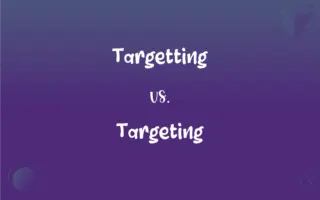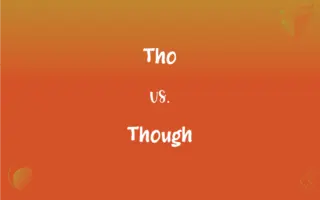Propably vs. Probably: Mastering the Correct Spelling
Edited by Aimie Carlson || By Janet White || Published on March 7, 2024
"Propably" is incorrect; the correct spelling is "probably," which means something is likely to happen or be true.

Which is correct: Propably or Probably
How to spell Probably?

Propably is Incorrect

Probably is Correct
ADVERTISEMENT
Key Differences
Associate "probably" with "probability," highlighting the "b" in both.
Recall "probably" includes all letters of "prob" as in "problem," indicating potential.
Remember, "pro" at the start, like "professional," followed by "bably" not "bly."
Think of the word "able" within "probably," suggesting the ability or likelihood.
Break it down phonetically: "prob-ab-ly" to emphasize the "b" sound.
ADVERTISEMENT
Correct usage of Probably
He's propably the best candidate for the job.
He's probably the best candidate for the job.
They are propably waiting for us already.
They are probably waiting for us already.
It will propably rain tomorrow.
It will probably rain tomorrow.
She will propably come to the party.
She will probably come to the party.
I can propably finish the work by noon.
I can probably finish the work by noon.
Probably Definitions
Indicating likelihood.
She will probably arrive late due to traffic.
Signifying something is plausible.
That's probably why the system failed.
To suggest something is likely true.
It's probably going to rain today.
Expressing tentative certainty.
He's probably the best candidate for the job.
Used to indicate a high degree of probability.
They're probably at home now.
Most likely; presumably.
In all likelihood.
In a probable manner; in likelihood.
Distinguish between what may possibly and what will probably be done.
With considerable certainty; without much doubt;
He is probably out of the country
In all likelihood we are headed for war
Easy to believe on the basis of available evidence;
He talked plausibly before the committee
He will probably win the election
Probably Sentences
They will probably announce the results tomorrow.
You can probably find it at any supermarket.
She's probably the smartest person I know.
It's probably too late to call him now.
I'll probably need help with this project.
You're probably tired after the long trip.
We'll probably go to the beach this weekend.
It's probably better to ask for directions.
It was probably just a coincidence.
The book is popular and probably out of stock.
They're probably just running late.
We should probably start without them.
I'll probably take a rain check on that offer.
It's probably safe to assume she won't come.
It's probably wise to check the weather forecast.
She probably knows more about it than she's letting on.
The movie starts at 8, so we should probably leave soon.
He's probably just stuck in traffic.
It's probably a good idea to save some money.
The weather is nice, so we'll probably go for a hike.
We'll probably need to book in advance.
I probably shouldn't have eaten so much cake.
You probably need a break after working so hard.
The exam was difficult, but I probably did okay.
They're probably used to the noise by now.
Probably Idioms & Phrases
Probably not
Indicates that something is unlikely to happen.
Given the weather, we'll probably not go to the beach today.
More than probably
Very likely; almost certainly.
She's more than probably going to be the next team leader.
As probably as not
Just as likely as it is unlikely; about an even chance.
As probably as not, the meeting will run late.
Probably so
Indicates agreement or affirmation that something is likely true.
Do you think it'll rain? Probably so.
Probably the best
Suggests something or someone is likely the top choice or option.
He's probably the best person for the job, given his experience.
Probably speaking
A casual way of stating that what follows is a likely explanation or outcome.
Probably speaking, they're late because of traffic.
Probably just as well
Implies that the outcome, though not what was planned or expected, is satisfactory or for the best.
The trip was canceled, but given the storm, it's probably just as well.
It's probably for the best
Suggests that something is likely the most favorable or suitable outcome.
It's disappointing, but it's probably for the best that we postponed the event.
Probably the case
Likely to be true or accurate.
It's probably the case that they overlooked the email in their inbox.
Would probably
Used to indicate what is likely to occur or be true under certain circumstances.
She would probably enjoy the concert, considering her taste in music.
Probably right
Acknowledges that someone's assumption or statement is likely correct.
You're probably right about needing a reservation.
Probably about time
Suggests that the moment for something to happen is likely near or overdue.
It's probably about time we started thinking about dinner.
I'll probably pass
A polite way of declining an offer, suggesting it's likely one will not participate.
Want to go jogging? I'll probably pass, thanks.
Probably the same
Indicates that the situation or outcome is likely not much different from others.
His reaction was probably the same as anyone else would have had.
That's probably why
Used to suggest a likely reason or explanation for something.
The roads were empty; that's probably why we arrived so early.
Probably a good thing
Suggests that an outcome or situation is likely beneficial.
It rained on the day of the indoor event, which was probably a good thing.
Probably the most
Indicates that something is likely the extreme or highest degree in its category.
This is probably the most important decision you'll make.
Probably the only one
Suggests being unique or alone in some respect.
She's probably the only one who hasn't seen the movie yet.
Probably wrong
Concedes that one's assumption or belief is likely incorrect.
I thought it was later, but I'm probably wrong.
Probably never know
Acknowledges that the truth or explanation might never be uncovered or understood.
We'll probably never know why the ancient civilization disappeared.
FAQs
What is the pronunciation of probably?
Probably is pronounced as /ˈprɑː.bə.bli/.
What is the root word of probably?
The root word of "probably" is "probable," derived from the Latin word "probabilis," meaning provable or believable.
Why is it called probably?
It's called "probably" because it denotes the likelihood or high probability of something happening or being true.
Which vowel is used before probably?
The vowel "o" is used before "probably."
What is the plural form of probably?
Similarly, adverbs do not have plural forms, so there is no plural form of "probably."
What is the singular form of probably?
"Probably" does not have singular or plural forms, as it is an adverb.
Which preposition is used with probably?
Prepositions are not typically paired with "probably," as it is an adverb modifying verbs, adjectives, or other adverbs.
What is the verb form of probably?
"Probably" is an adverb; it does not have a verb form.
Which article is used with probably?
Articles are not used with "probably" because it is an adverb.
Is probably a noun or adjective?
"Probably" is an adverb.
Is probably an adverb?
Yes, "probably" is an adverb.
Is probably a vowel or consonant?
The word "probably" starts with the consonant "p."
How is probably used in a sentence?
"We will probably go out for dinner tonight."
Is probably a negative or positive word?
"Probably" is neutral; its positive or negative connotation depends on the context.
Is probably a collective noun?
No, "probably" is not a noun; it is an adverb.
How many syllables are in probably?
There are three syllables in "probably."
What is the third form of probably?
Similarly, there is no third form for "probably."
Which conjunction is used with probably?
Any conjunction can be used in sentences with "probably," as it does not directly interact with conjunctions.
Is probably an abstract noun?
No, "probably" is not a noun; it is an adverb.
Is probably a countable noun?
"Probably" is not a noun, so it is not countable.
Is the word probably imperative?
No, "probably" is not used in the imperative mood; it's an adverb.
How do we divide probably into syllables?
Probably is divided into syllables as prob-a-bly.
What is a stressed syllable in probably?
The stressed syllable in "probably" is the first syllable, prob-.
What part of speech is probably?
"Probably" is an adverb.
What is another term for probably?
Another term for "probably" is "likely."
What is the opposite of probably?
The opposite of "probably" could be "improbably" or "unlikely."
What is the first form of probably?
As "probably" is an adverb, it does not have verb forms.
What is the second form of probably?
There is no second form; "probably" remains unchanged as it is not a verb.
Is the probably term a metaphor?
"Probably" itself is not a metaphor but can be part of metaphorical expressions.
Which determiner is used with probably?
Determiners are not used with adverbs like "probably."
About Author
Written by
Janet WhiteJanet White has been an esteemed writer and blogger for Difference Wiki. Holding a Master's degree in Science and Medical Journalism from the prestigious Boston University, she has consistently demonstrated her expertise and passion for her field. When she's not immersed in her work, Janet relishes her time exercising, delving into a good book, and cherishing moments with friends and family.
Edited by
Aimie CarlsonAimie Carlson, holding a master's degree in English literature, is a fervent English language enthusiast. She lends her writing talents to Difference Wiki, a prominent website that specializes in comparisons, offering readers insightful analyses that both captivate and inform.


